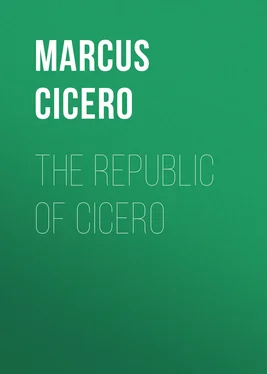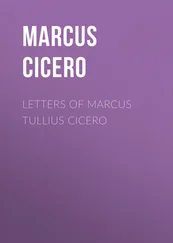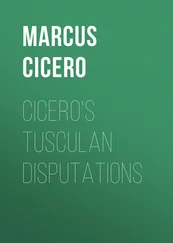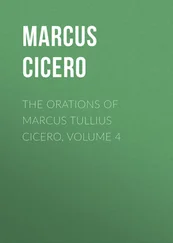Marcus Cicero - The republic of Cicero
Здесь есть возможность читать онлайн «Marcus Cicero - The republic of Cicero» — ознакомительный отрывок электронной книги совершенно бесплатно, а после прочтения отрывка купить полную версию. В некоторых случаях можно слушать аудио, скачать через торрент в формате fb2 и присутствует краткое содержание. Жанр: foreign_antique, Философия, foreign_edu, на английском языке. Описание произведения, (предисловие) а так же отзывы посетителей доступны на портале библиотеки ЛибКат.
- Название:The republic of Cicero
- Автор:
- Жанр:
- Год:неизвестен
- ISBN:нет данных
- Рейтинг книги:5 / 5. Голосов: 1
-
Избранное:Добавить в избранное
- Отзывы:
-
Ваша оценка:
- 100
- 1
- 2
- 3
- 4
- 5
The republic of Cicero: краткое содержание, описание и аннотация
Предлагаем к чтению аннотацию, описание, краткое содержание или предисловие (зависит от того, что написал сам автор книги «The republic of Cicero»). Если вы не нашли необходимую информацию о книге — напишите в комментариях, мы постараемся отыскать её.
The republic of Cicero — читать онлайн ознакомительный отрывок
Ниже представлен текст книги, разбитый по страницам. Система сохранения места последней прочитанной страницы, позволяет с удобством читать онлайн бесплатно книгу «The republic of Cicero», без необходимости каждый раз заново искать на чём Вы остановились. Поставьте закладку, и сможете в любой момент перейти на страницу, на которой закончили чтение.
Интервал:
Закладка:
Marcus Tullius Cicero
The republic of Cicero / Translated from the Latin; and Accompanied With a Critical / and Historical Introduction
SOUTHERN DISTRICT OF NEW-YORK, ss
Be it remembered, that on the 23d day of January, A. D. 1829, in the fifty-third year of the Independence of the United States of America, G. & C. Carvill, of the said district, hath deposited in this office the title of a book, the right whereof they claim as proprietors, in the words following, to wit:
“The Republic of Cicero, translated from the Latin; and accompanied with a Critical and Historical Introduction. By G. W. Featherstonhaugh, Esq., Fellow of the Geological Society of London; of the American Philosophical Society; of the Lyceum of Natural History of New-York, &c. &c. &c.”
In conformity to the Act of Congress of the United States, entitled, “An Act for the encouragement of learning, by securing the copies of maps, charts, and books, to the authors and proprietors of such copies, during the times therein mentioned;” and also, to an Act, entitled, “An Act, supplementary to an Act, entitled an Act for the encouragement of learning, by securing the copies of maps, charts, and books, to the authors and proprietors of such copies, during the times therein mentioned, and extending the benefits thereof to the arts of designing, engraving, and etching historical and other prints.”
FRED. I. BETTS,
Clerk of the Southern District of New-York .
TO RODERICK IMPEY MURCHISON, Esq
I dedicate these pages to you, my dear Murchison, that you may have a renewed assurance of my great esteem and friendship for you. I should have had a livelier satisfaction in doing so, if the part I have had in the production of them, were more worthy of your refined taste. I hope to offer some compensation, however, in the assurance, that you will find in them many congenial opinions and principles.
G. W. Featherstonhaugh.
New-York, January 21, 1829.
PREFACE
I am not aware that any translation of the Republic of Cicero into the English tongue has been made.
Believing that it cannot but excite a deep interest with generous minds, as well on account of the high nature of the subject, the illustrious name of Cicero, as of the great motives which led him to compose this work, I venture to offer a translation of it to the public.
In this extensive republic, where every individual reads, it appears peculiarly proper, that an English dress should be given to a work, of which almost every page teaches that public happiness depends upon individual virtue.
Cicero’s definition of a republic, that it is an association of the people for the defence and advancement of the common interest; will be understood here, which may be doubtingly said of any other republics now in existence.
A bare translation of the fragments of this mutilated work, unassisted by any commentary, could not but have been unsatisfactory. The deficiencies of the original are somewhat compensated to us, not alone in the grandeur of thought which pervades it, but in the majesty of diction, precise, elevated, as it frequently is, and always governed by the most refined taste. It would be a vain effort to attempt the dignity of the Latin tongue, when adorned with the elegancies of the Ciceronian style. Humbly as the translation may deserve to be considered, it will perhaps be deemed sufficiently faithful: and that the translator has not altogether failed in pointing out to grave and reflecting minds, the immediate cause of the ruin of a noble Republic.
He has therefore prefixed a brief historical introduction; the which, whether it will be thought too long, or not sufficiently detailed, will probably depend upon the reader’s historical recollections. The motive for drawing it up was to render the work more generally useful and acceptable.
INTRODUCTION
The imperfect manuscript, a translation of which is now presented to the American public, was discovered in the Library of the Vatican, by Professor Angelo Mai; a person of singular ingenuity in the detection of those Palimpsests whose contents were written upon ancient writings partially erased. A fac simile of part of the MSS. accompanies this work. The Republic of Cicero was greatly cherished by those who lived in and near his times; of which occasional evidences are found in the writings of antiquity. But the tyranny of the emperors bridled the Romans so soon after its appearance, that Horace, Virgil, Seneca, Quintilian, Pliny, and even Tacitus, have not dared to praise it, lest they should bring down vengeance upon themselves. It is remarkable that while despotism was rapidly extinguishing philosophy and letters, and the very existence of these precious monuments of better times was scarcely thought of; the Christian religion was gradually raising up amidst the persecutions of the primitive church, new champions for truth and justice; to whose works we are indebted for many valuable fragments of the best writers of antiquity, and for almost all the passages of Cicero’s Republic which we were acquainted with, until the late discovery of professor Mai. It is in the works of St. Augustin and of Lactantius that these passages most abound; and they are appealed to by them as most eloquent arguments, in support of just government, and virtuous conduct. Scipio’s Dream, forming the only part of the sixth book which has been preserved, and which is one of the most splendid passages that has been saved from antiquity, has long had a place in the works of Macrobius, a writer at the beginning of the fifth century, addicted to the Pythagorean mysticisms; and who has preserved it probably on account of the occult astronomical relation of numbers contained in it. Notwithstanding the mutilated state of the MSS., the order of the books is distinctly preserved, the general plan of the work is obvious, and we have much greater reason to rejoice at what we possess, than to regret what is wanting. The disordered state of the government and the republic at large, evidently suggested to Cicero this patriotic and bold attempt to stem the influence of bad men, and raise the falling liberties of his country. In this highly philosophical discourse he sought to recall the Romans from the interests of ambitious individuals, and fix their attention upon the greater interests of the country, where each man had a stake: to revive their veneration for the simplicity of the early institutions of Rome, and for the men who had made themselves illustrious by their virtues: and to guard the people more effectually against the innovations and factions now succeeding each other with so much rapidity, he invests those ancient times with a perfection, that the attractions of his eloquence alone can excuse.
Of the original simplicity of the government, some evidences are afforded by this work; as where it is stated that lands were assigned to the sovereign, and cultivated for him by the people, that he might have nothing to do but administer justice. The principal men too of the state in those early times lived in the vicinity of Rome, cultivating a small possession. The illustrious names of Fabius, Lentulus, Cicero, &c., were perhaps given to those husbandmen who excelled in the cultivation of those vegetables; such was the opinion of Pliny. 1 1 His. Nat. 18. 3. 1.
The censor had the power of reprimanding those whose fields were slovenly cultivated. Many customs of those antique times are found in Cato’s curious Treatise on Rural Affairs. “Our ancestors constituted and ordained thus in their Laws: A thief was condemned to double restitution; an usurer to quadruple. You may judge from this how much worse a citizen they deemed the usurer to be than the thief. And when they praised a worthy man, they spoke thus of him: ‘that he was a good farmer, an excellent husbandman.’ He that was commended in these terms, was thought to be praised enough.” 2 2 Cato de Re Rustica. Majores enim nostri, &c.
Интервал:
Закладка:
Похожие книги на «The republic of Cicero»
Представляем Вашему вниманию похожие книги на «The republic of Cicero» списком для выбора. Мы отобрали схожую по названию и смыслу литературу в надежде предоставить читателям больше вариантов отыскать новые, интересные, ещё непрочитанные произведения.
Обсуждение, отзывы о книге «The republic of Cicero» и просто собственные мнения читателей. Оставьте ваши комментарии, напишите, что Вы думаете о произведении, его смысле или главных героях. Укажите что конкретно понравилось, а что нет, и почему Вы так считаете.












